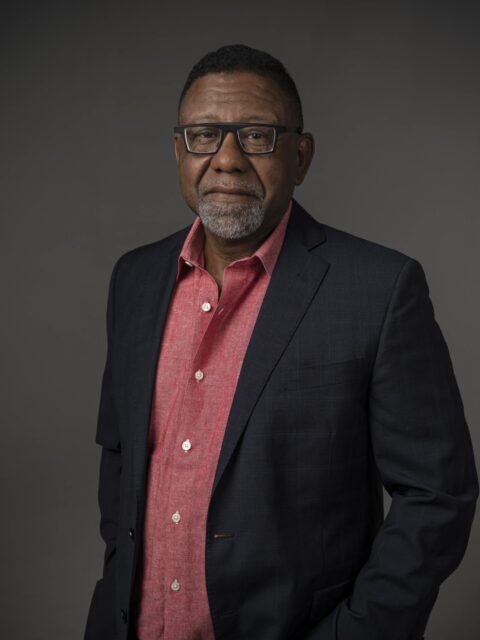Randal Jelks book, “Letters to Martin: Meditations on Democracy in Black America,” is filled with deep insights about who King was and why. It’s also a tribute to the ways in which King influenced Jelks.
When an 11-year-old Randal Jelks went back to school the Monday after the Rev. Dr. Martin Luther King, Jr. was assassinated, his sixth-grade teacher, had an unusual request.
Mr. Price put Jelks in charge of the class record player and asked him to play King’s sermons and speeches. In between selections, Price helped his young charges understand not just the gravity of King’s death but also the history of what he called “our people and our struggle.”
Jelks, now a Professor of African and African American Studies and American Studies at the University of Kansas, has never forgotten that day, and half a century later King’s words still ring in his ears.
His book, “Letters to Martin: Meditations on Democracy in Black America,” is filled with deep insights about who King was, and why. It’s also a tribute to the ways in which King influenced Jelks.
Indeed, Jelks went on to become an ordained minister (he has his divinity degree from McCormick Theological Seminary) and to earn his Ph.D. in history (from Michigan State University), and he now is the Rev. Dr. Randal Maurice Jelks (his bachelor’s degree is from the University of Michigan).
As a man of faith, Jelks said his new book doesn’t shy away from the central role that the Christian faith played in King’s life, starting with his name change.
“People sometimes forget that Dr. King began life as Michael King, Jr.,” Jelks said with a chuckle. “His dad, Michael King, was a pastor and after a trip to Germany in 1934, where he visited sites associated with Martin Luther, he returned to the U.S. and changed his name to Martin Luther King and his son’s name to Martin Luther King, Jr. His son was five at the time, so it was a significant moment.”
Jelks writes in his new book that King’s faith was “based in a metaphysical belief that human beings are accountable to the divine for how we live together.”
But, Jelks said, King also knew that because of sin, human goodness could be grossly twisted.
“The slave ship and the cross were his daily reminders,” Jelks said.
Still, Jelks said, King held fast to his calling as a preacher in all that he did.
“In a 1967 speech at a Baptist church in Chicago, King said his first calling was to be a preacher of the gospel,” Jelks said. “More than that, he told his audience that everything he did in civil rights, he did because he considered it part of his ministry, and he added that he had no other ambitions in life but to remain a preacher.”
Jelks spends a lot of time in his book reflecting not just on stories from King’s past but also on current North American culture and what King might make of the state of the world heading into 2023, a year that will include not just King Day in January, Black History Month in February and the anniversary of King’s assassination in April but also the 60th anniversary of the March on Washington in August 2023.
A wry smile crosses Jelks’ often-animated face when he’s asked about King and current culture.
“We in the 21st century are what he feared,” Jelks said plainly. “We now all are commodities. Being a citizen now is too often conflated with consumerism, and what is worse is the marketing of fear. King called us to put away our fears, and that is a message we need to hear now more than ever.”
What we need to do now, he said, is learn from the protestors of the past, to understand the lessons of the Civil Rights movement and to once again remake democracy in America.
“It has to be more than holidays and streets named for Dr. King,” he said. “We need to build institutions that help people build lives that are accountable to causes greater than just themselves, including lives of justice and service.”
###
Contact:
Rev. Dr. Randal M. Jelks
Author, Expert, Professor
616-822-2885
[email protected]
Disclaimer: The views and opinions expressed in this article are those of the authors and do not necessarily reflect the official policy or position of Religion News Service or Religion News Foundation.





